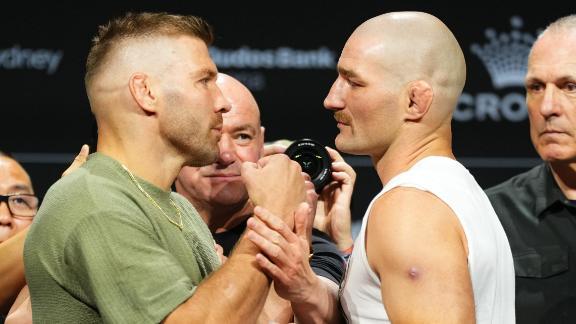UFC middleweight Sean Strickland has voiced sharp criticism of the promotion following an incident involving featherweight contender Bryce Mitchell, who recently took to social media seeking free medical assistance. The situation has ignited a heated debate within the MMA community about fighter compensation and healthcare support, raising questions about the responsibilities of the UFC toward its athletes. This article delves into Strickland’s remarks and the broader implications for fighter welfare in professional mixed martial arts.
Sean Strickland Criticizes UFC’s Lack of Support Following Bryce Mitchell’s Public Appeal for Medical Assistance
Sean Strickland did not hold back in expressing his frustration with the UFC’s response, or lack thereof, following Bryce Mitchell’s recent public plea for medical support. Mitchell took to social media in a desperate attempt to seek assistance for urgent health concerns, shining a stark light on what some inside the MMA community are calling a systemic failure by the organization. Strickland slammed the UFC for what he described as a “cold and indifferent” approach to fighter welfare, emphasizing that athletes put their lives on the line and deserve better care and support from the promotion that profits immensely from their efforts.
Strickland’s criticism also sparked a wider conversation about the responsibilities UFC holds toward its fighters outside the octagon. He highlighted several key issues:
- Inadequate medical coverage – Fighters often face expensive treatments without sufficient organizational support.
- Lack of transparency – Communication gaps about health resources leave fighters uncertain about available assistance.
- Financial vulnerability – Many athletes lack insurance or fallback plans during injury or illness.
| Factor | Current UFC Practice | Suggested Improvement |
|---|---|---|
| Medical Benefits | Limited, case-by-case | Comprehensive fighter health insurance |
| Communication | Reactive | Proactive health support program |
| Financial Aid | Minimal | Fund for medical emergencies |
Experts Recommend UFC Implement Comprehensive Healthcare Programs to Aid Fighters Facing Medical Emergencies
In the wake of Bryce Mitchell reaching out on social media for assistance with his mounting medical bills, UFC commentators and health experts are intensifying calls for the organization to establish comprehensive healthcare programs for fighters. Critics argue that while UFC athletes put their bodies at risk inside the octagon, they are often left vulnerable after their careers, grappling with costly medical emergencies that can jeopardize their wellbeing. Experts emphasize the urgency of structured support mechanisms, including insurance coverage, emergency funds, and routine health assessments, to ensure fighters do not have to rely on public appeals or personal resources when faced with serious injuries.
Industry analysts suggest a multi-tiered approach to fighter healthcare, which could include:
- Guaranteed post-fight medical coverage extending beyond immediate injuries
- Access to mental health counseling addressing psychological impacts of combat sports
- Long-term rehabilitation programs tailored specifically for chronic conditions linked to fighting
- Financial assistance initiatives for athletes facing medical emergencies
Outlined below is a simple comparison table of proposed healthcare benefits against the current UFC support system, highlighting the gaps advocates want addressed:
| Healthcare Aspect | Current UFC Practice | Recommended Enhancement |
|---|---|---|
| Emergency Medical Coverage | Limited or fight-based only | Comprehensive, long-term plans |
| Mental Health Support | Minimal or ad-hoc | Regular psychological counseling provided |
| Long-Term Rehabilitation | Typically not provided | Specialized programs for chronic injuries |
| Financial Assistance | No formal system in place | Emergency funds and insurance subsidies |
If you want, I can also help you improve the copy or enhance the layout further. Let me know!
Wrapping Up
The incident between Sean Strickland and Bryce Mitchell highlights ongoing tensions within the UFC community regarding fighter welfare and access to adequate support systems. As social media increasingly becomes a platform for athletes to voice concerns and seek assistance, the organization faces growing scrutiny over how it addresses the needs of its competitors. Moving forward, the UFC’s response to such challenges will likely play a critical role in shaping its relationship with fighters and its public image.








